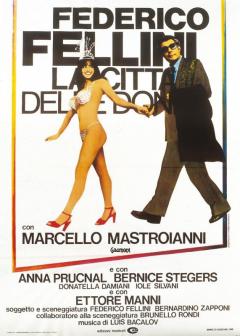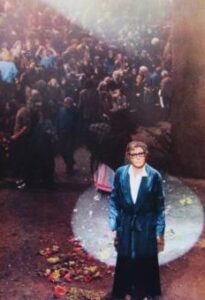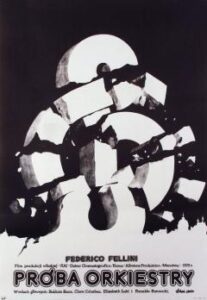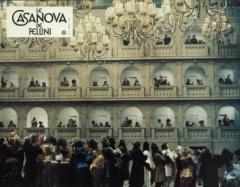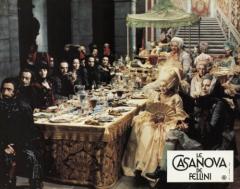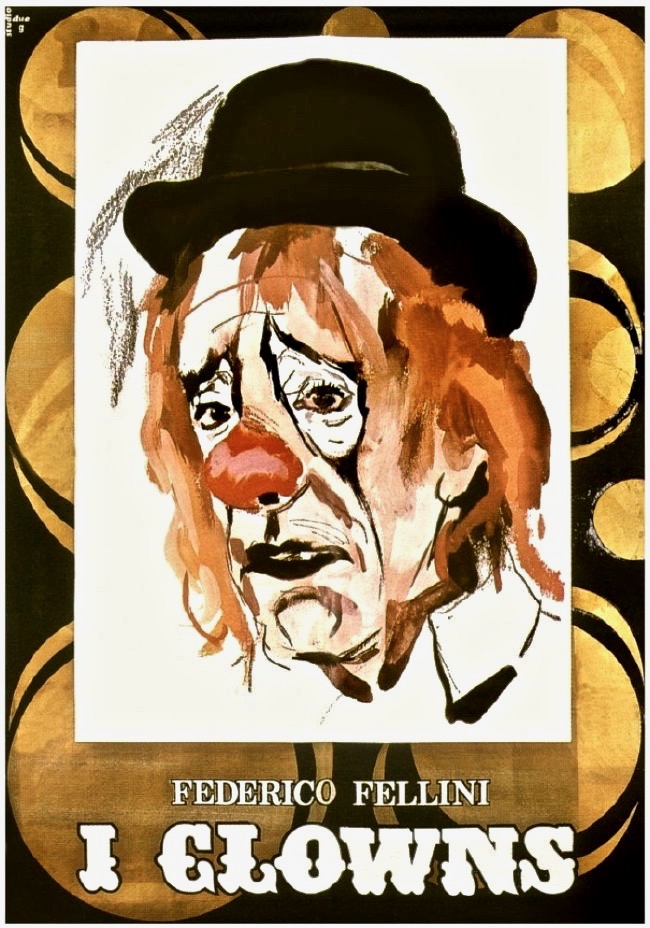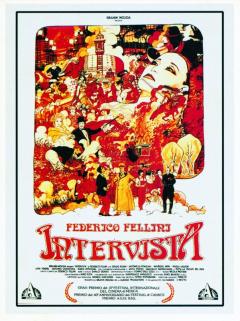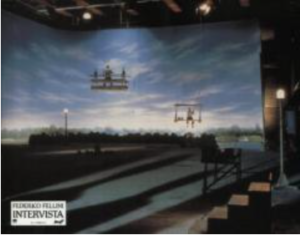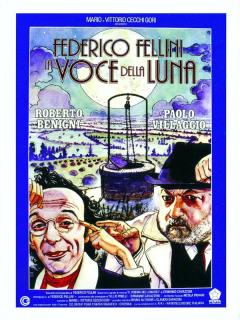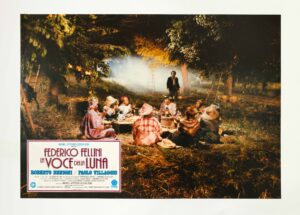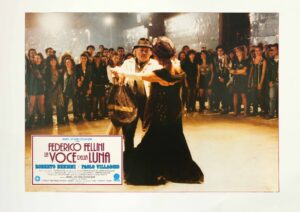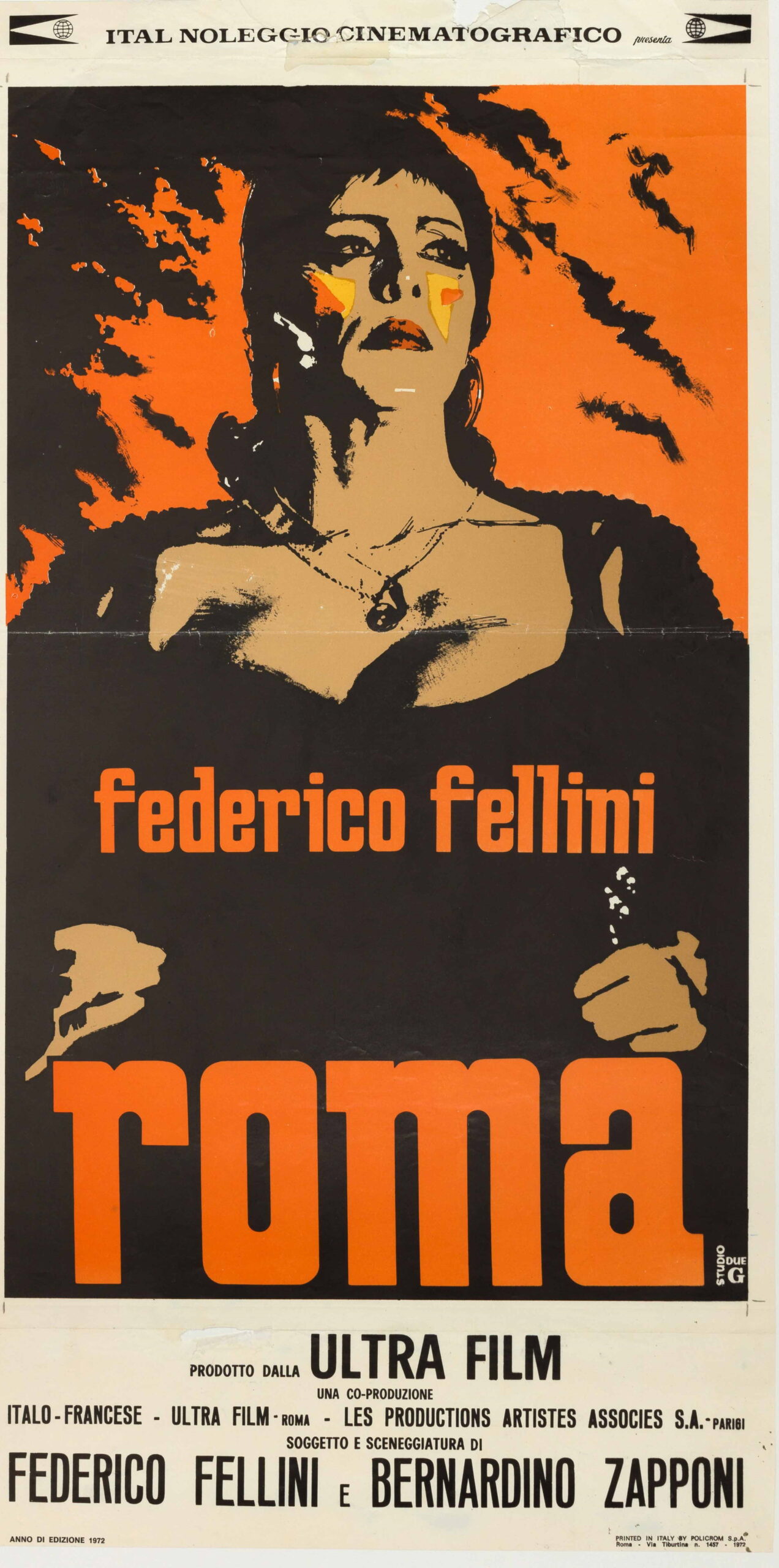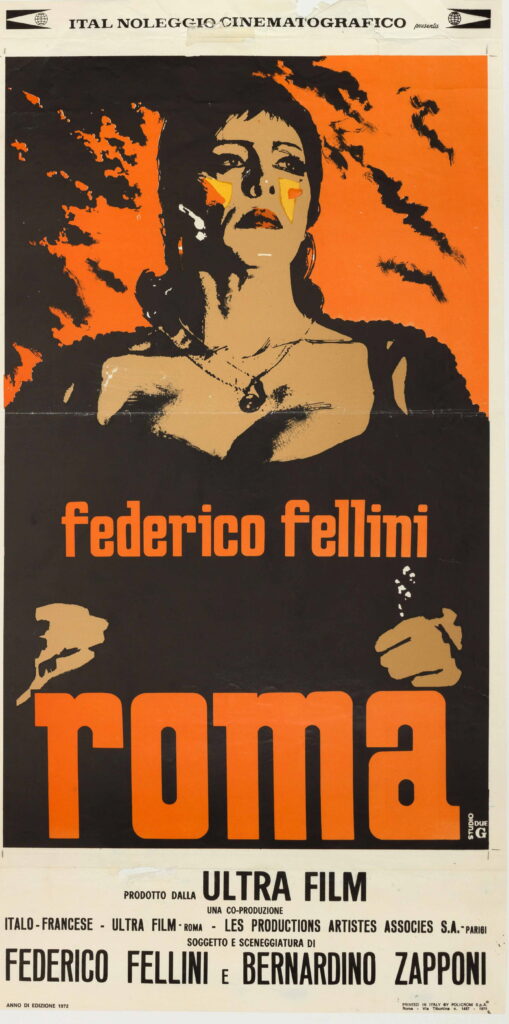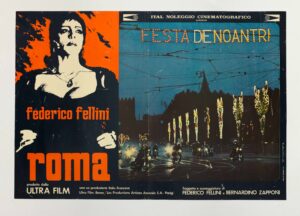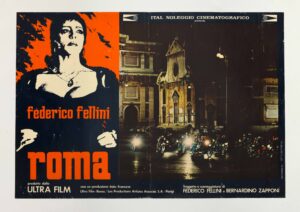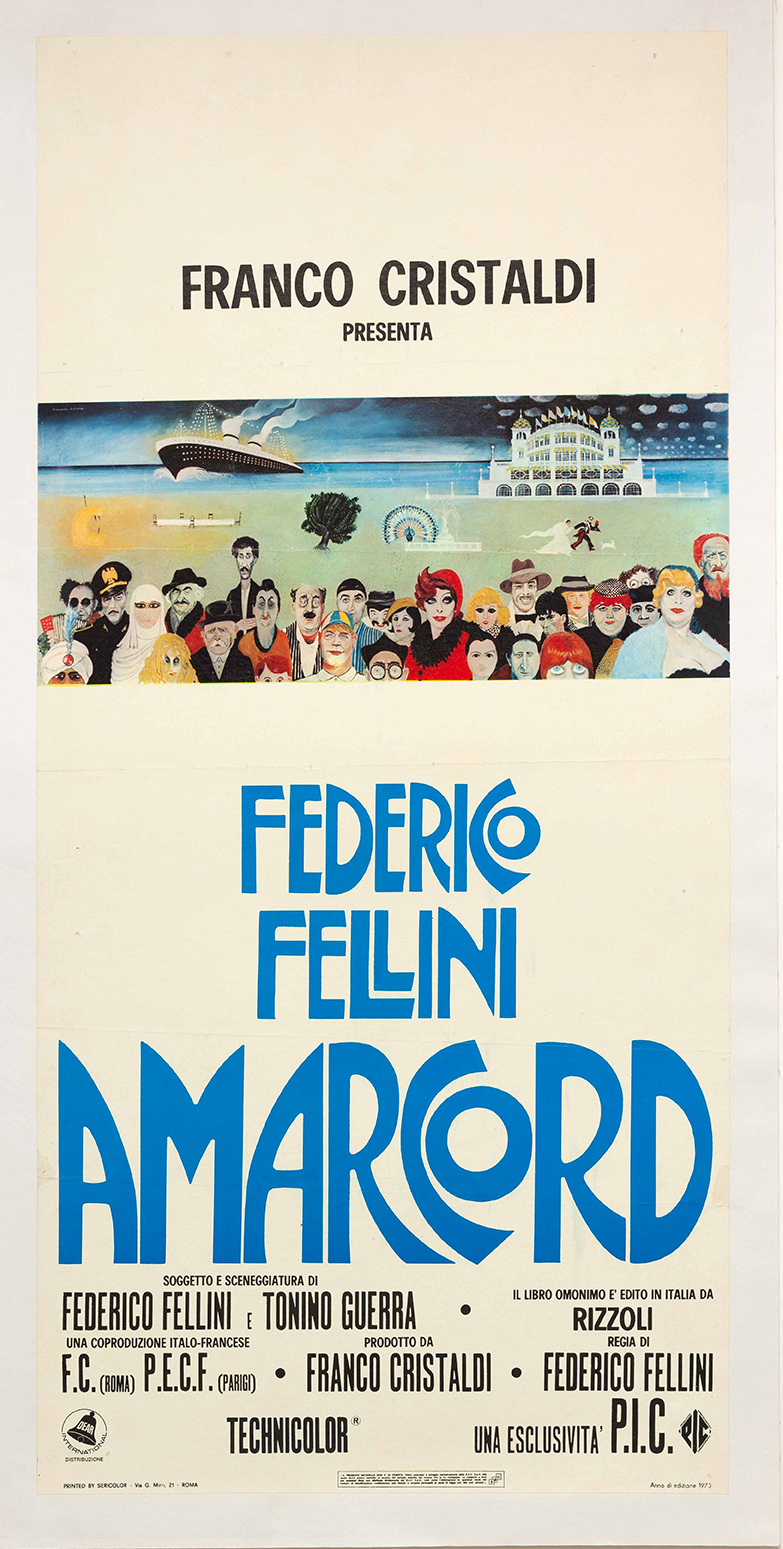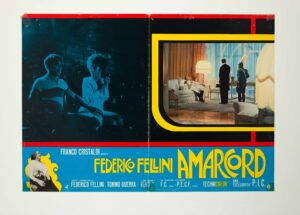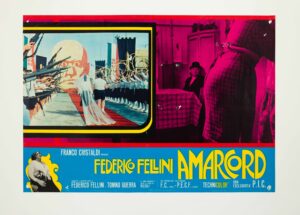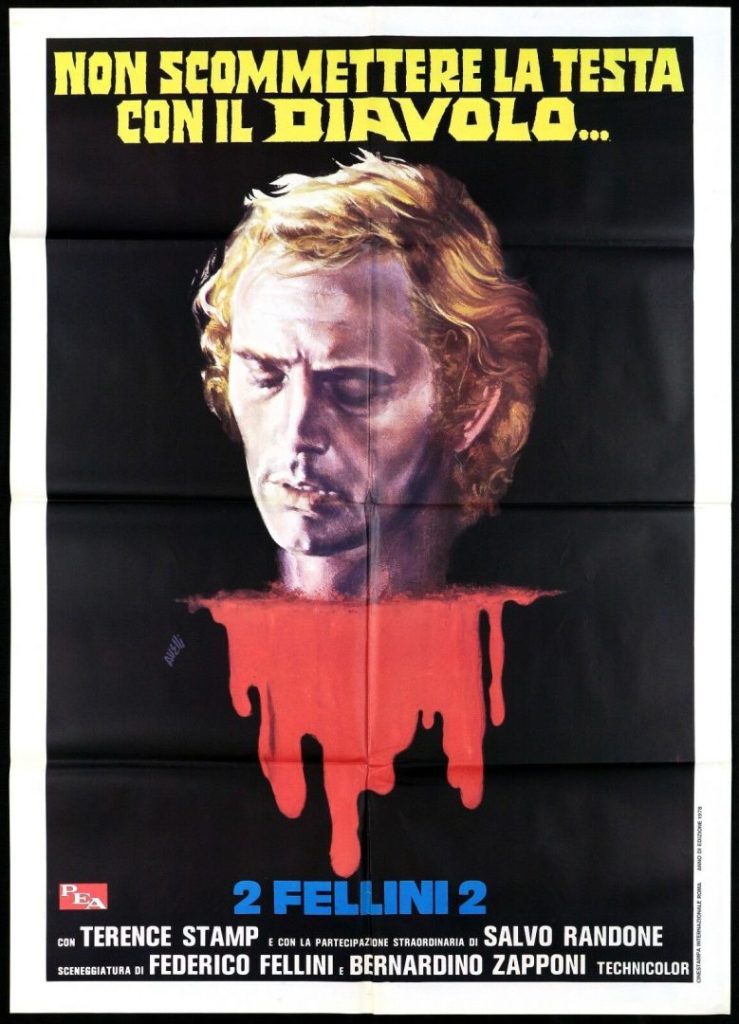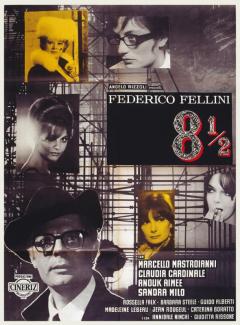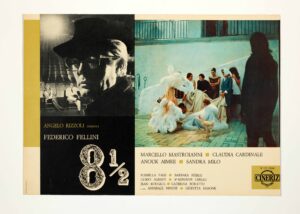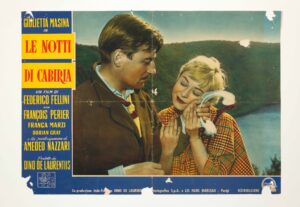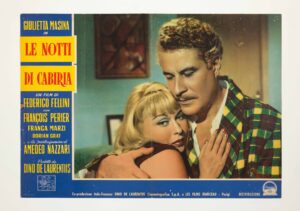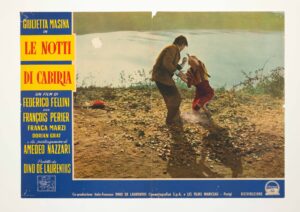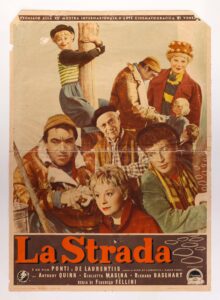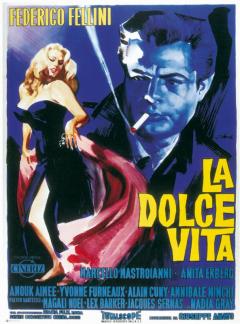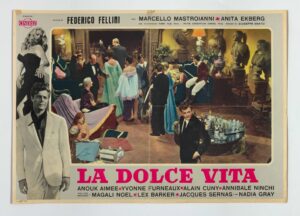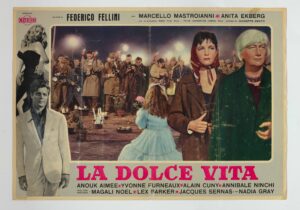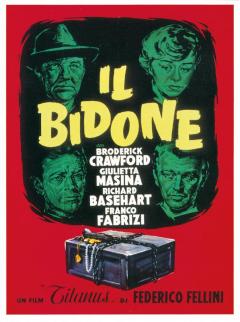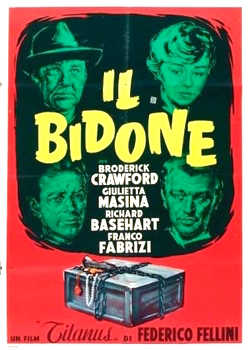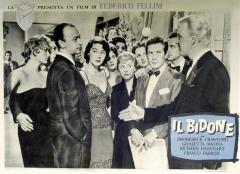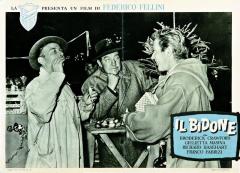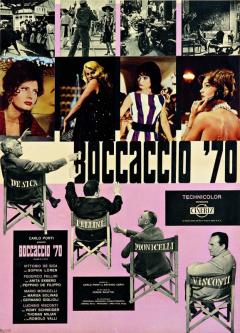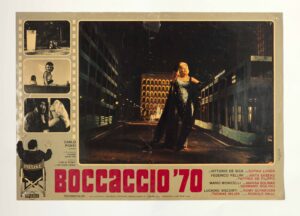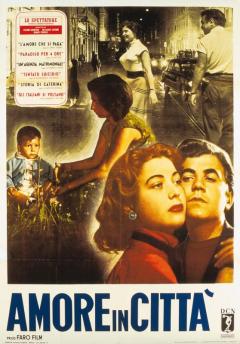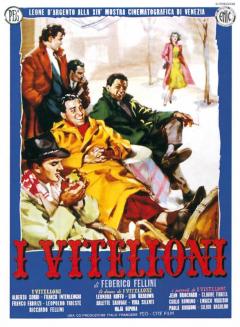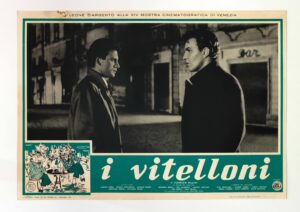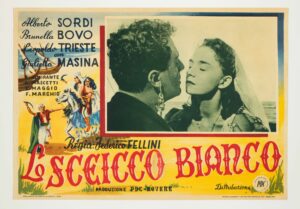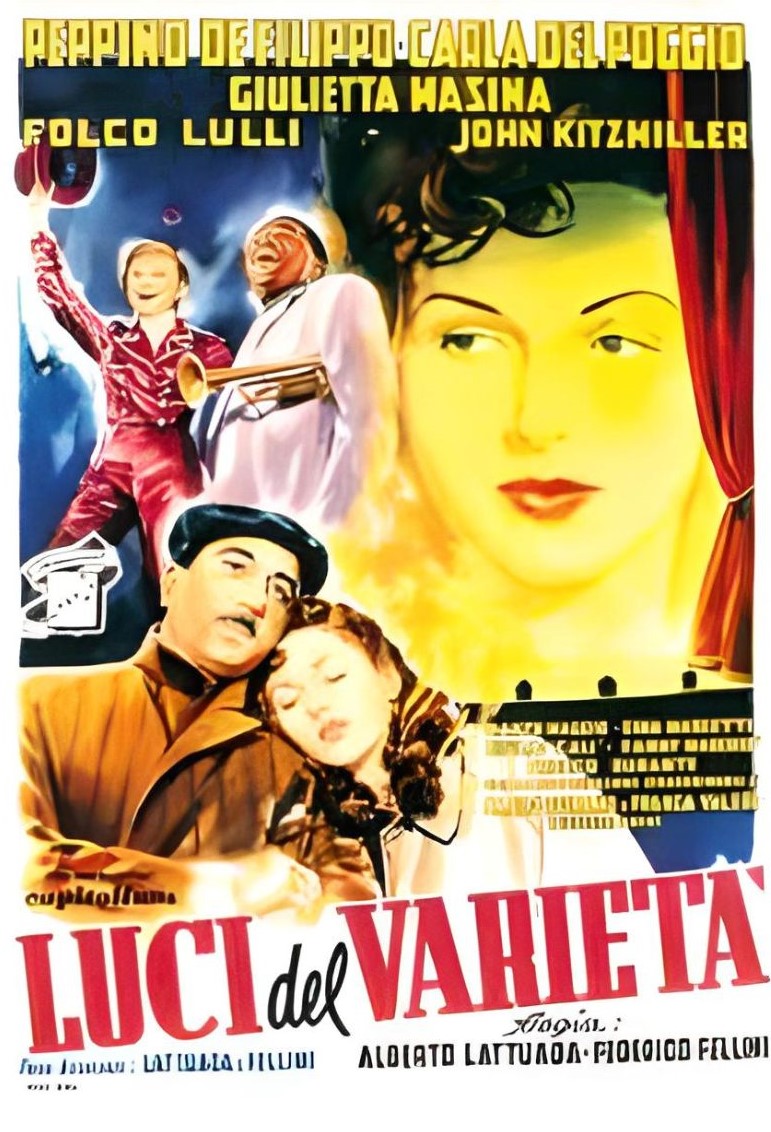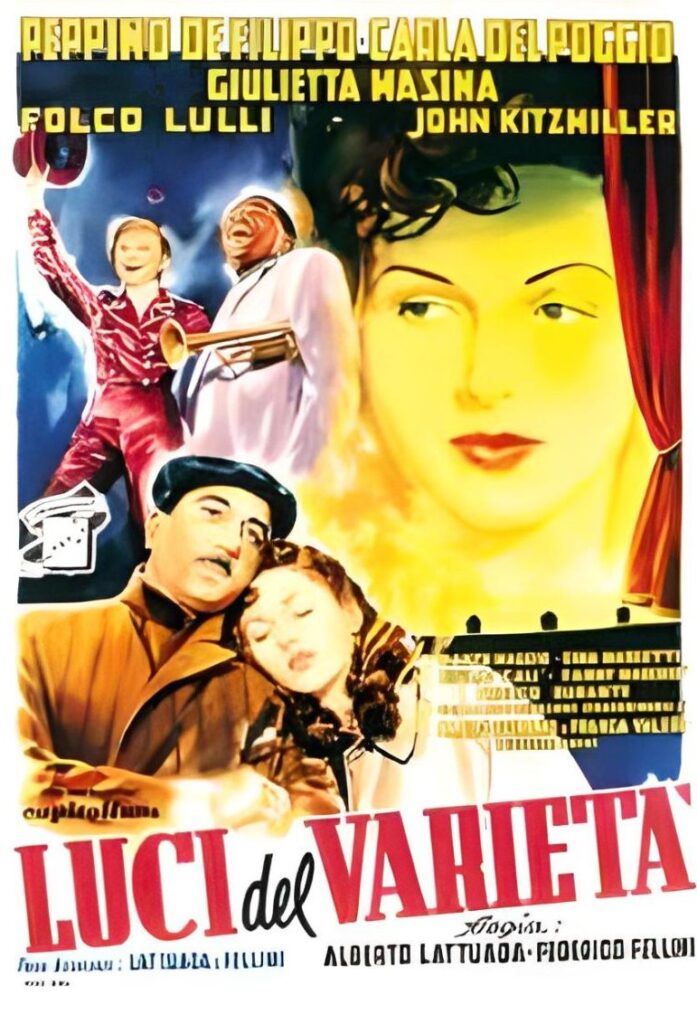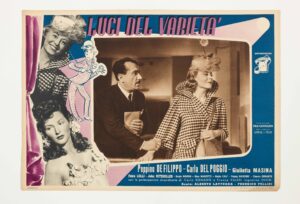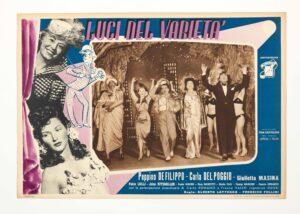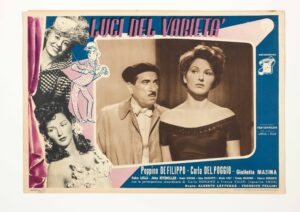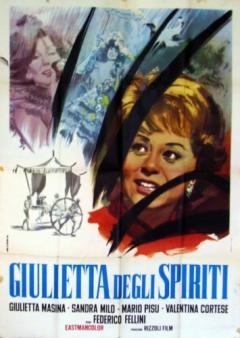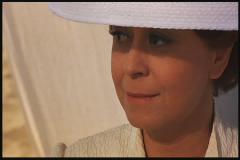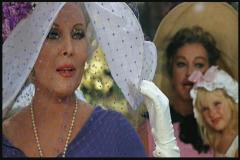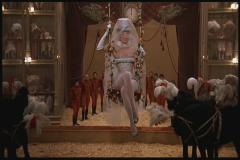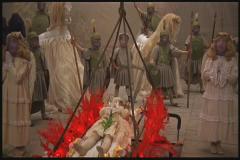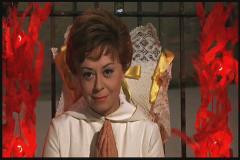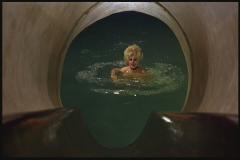Ginger e Fred
Studio: Cinecittà
Word sales: internazionale Sacis, italiana Istituto Luce, Italnoleggio Cinematografico
Viewed censorship: 81020 30/10/1985Amelia, a former dancer nicknamed “Ginger”, widow and owner of a small industry, goes down to Termini station. He must appear on television to dance, thirty years later, with his old partner Pippo, in art “Fred”. It’s Christmas time, there’s a lot of confusion. Ginger gets on a bus where she meets strange characters; she arrives at a large hotel where all the staff is in front of the TV, taken from a football match. Fred has not yet arrived, and Ginger goes down the street, where she is surrounded by a group of threatening bikers. He returns to his room, hears snoring and discovers that it is Fred, aged, beaten to a pulp, who has agreed to attend the show only for money. The two would like to at least try their old number, but they can not for the bailamme of strange characters, guests, like them, of the broadcast And here it is. They do eventually, but it’s a disaster. Only the compliments of the TV president convince them to participate in the show: when it comes to them it is a success. At the station, at the time of departure, they are recognized and sign autographs. Then, after Fred gets some borrowed money from Ginger, they separate. She leaves. The lights on the tracks go out and only the TV with its pounding commercials remains.
poster – courtesy of © Webphoto & Services

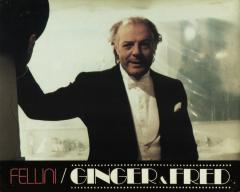

Crew
Director: Federico Fellini
Subject: Federico Fellini, Tonino Guerra
Screenplay: Federico Fellini, Tonino Guerra, Tullio Pinelli
Photography: Tonino Delli Colli, Ennio Guarnieri
Operator: Aldo Marchiori, Carlo Tafani, Gianni Fiore
Assistant operator: Gianfranco Torinti, Antonio Scaramuzza, Marco Sperduti, Luca Luparini
Music: Nicola Piovani (directed by the author)
Stage design: Dante Ferretti
Assistant set designer: Franco Ceraolo
Special effects: Adriano Pischiutta
Costumes design: Danilo Donati
Layout: Gian Franco Fumagalli
Architect: Nazzareno Piana
Costume designer assistant: Rosanna Andreoni
Paintings: Rinaldo Geleng, Giuliano Geleng
Choreography by Tony Ventura
Editing: Nino Baragli, Ugo De Rossi, Ruggero Mastroianni
Editing assistant: Marcello Olasio
Secretary of edition: Norma Del Pace Giacchero
Assistant director: Gianni Arduini
Assistant director: Filippo Ascione, Daniela Barbiani, Eugenio Cappuccio, Anke Zindler
Trick: Alfredo Tiberi
Hairdresser: Aldo Signorelli, Rosa Luciani, Giancarlo Marin
Manufacturer: Alberto Grimaldi
General organization: Luigi Millozza
Production Director: Walter Massi, Gianfranco Coduti, Roberto Mannoni, Raymond Leplont
Production inspector: Tullio Lullo, Fernando Rossi, Vieri Spadoni, Franco Marino
Production secretary: Alessandro Mancini, Lyda Garozzo, Carla Ferroni, Maurizio Pigna, Filippo Spoletini, Marcello Mancini
Dubbing director: Mario Maldesi
Mixage: Fausto Ancillai
Cast
Giulietta Masina: Ginger
Marcello Mastroianni : Fred – ep. Roma
Franco Fabrizi : presenter
Frederick Ledenburg : Admiral
Augusto Pederosi : transvestite
Martin Maria Blau : assistant director
Jacques Henri Lartigue : the flying friar
Toto Mignone : Toto
Ezio Marano : intellectual
Antonie Saint Jean : assistant
Frederick Thun : kidnapped
Antonio Lorio : TV inspector
Barbara Scoppa : journalist
Elisabetta Flumeri : journalist
Salvatore Billa : Clarke Gable
Broom Spinola : mother voices passed
Stefania Marini : the TV secretary
Francesco Casale : mafioso
Gianfranco Casale : mafioso
Gianfranco Alpestre : lawyer
Filippo Ascione : pianist
Elena Cantarone : nurse
Cosimo Chiusoli : the wife of the despised
Claudio Ciocca : cameraman
Sergio Ciulli : son dead voices
Federica Paccosi : dancer
Alessandro Partexano : sailor
Tiziana Bucarella
Leonardo Petrillo : Marcel Proust
Renato Grilli : Franz Kafka
Daniel Aldrovandi : Marty Feldmann
Barbara Montanari : Bette Davis
Barbara Golinska : Marlene Dietrich
Luigi Duca : Adriano Celentano
Eolo Capritti : Kojak
Awards
1986
Silver ribbon for best actor
1985-86
Silver ribbon for best actress
1985-86
Silver ribbon for best scenography
1986
Silver ribbon for best costumes
David di Donatello for best actor
David di Donatello for best music
David di Donatello for best costumes
David René Clair Award to Federico Fellini for the film
Nomination BAFTA (British Academy of Film and Television Arts Awards) for Best Foreign Film
Reviews
A witness of a civilization which is beginning to destroy itself through a system of communications which adulterates knowledge, the cinema of the new Fellini is therefore a lament about the unreliability of the messages transmitted between peoples, individuals and institutions, not inspired by absolute values, but metaphors of provisional truths. It is the groan of an artist who in each of his characters, in their clandestine loves, in their intrigues, in their celestial or brutal movements reads the grimaces of society and the illusions of some candid soul. Therefore, a disconcerting cinema if once again the power of representation, the incisiveness of the portraits, the tragicomic of certain situations did not reverse the anguish of mockery. [… ] Putting the theme of imitation at the center of the story, and reconstructing almost everything in the studio, Ginger and Fred is the best film that so far has been made about the unreality in which we live, encoded on TV. It is to be glad that it was Fellini, a master of cinema, to remind us, bitterly playing, that we have all been doubles for quite a while, and perhaps that is why on earth we feel lost. We don’t know who to look like anymore.
(Giovanni Grazzini, Il cinemondo. Ten years of film 1976-1986, Laterza, Roma-Bari, 1987)
The approach to La dolce vita is not accidental, and not only for the rather banal reason that an author – a Fellini, especially – always continues to make the same film. What the magazine magazines had been 26 years ago for La Dolce Vita, the world of television with its megashows is for Ginger and Fred. There is no doubt that Fellini continues to be himself: storyteller, magician, illusionist, histrion, mystifier, willing to do anything to play the cards of the show, just to celebrate the Representation, to suggest that, Despite everything, life has its own deep sweetness, indispensable […] Fellini’s gaze seems changed: he has become more despondent. If La dolce vita could be called a journey through disgust, Ginger and Fred is a sea crossing of vulgarity. And vulgarity is that of television, of the flood of advertising, of the civilization of consumption. This is also evident from the few but unequivocal signals that the film sends to the outside world on the TV megashow: those on the degradation of Rome, for example.
(Morando Morandini, “The Day”, 14 January 1986)
A film shot masterfully and that renews the success of a famous trademark. But what kind of film is it? Just a short film to give Juliet and Marcello a chance? Or a film born of an expressive need and such as to add something to what we knew about Fellini and his world? The almost unanimous response of the French newspapers, concerned about the Berlusconi invasion, is that Ginger and Fred is a denunciation of the cultural genocide perpetrated in the degeneration of the television phenomenon. Others argue that it is not just a pamphlet against TV, but against the whole of society today: a sort of Rehearsal Orchestra Part II […] The stoic sense of Ginger and Fred is that maybe there is nothing to understand, you just have to live. We must learn to float as Marcello did in La dolce vita; even if the waters slowly become those of the Styx as in the planned and never realized The journey of G. Mastorna; even though nowadays you have the impression of floating on a polluted sea like Ginger and Fred.
(Tullio Kezich, “La Repubblica”, 13 January 1986)
Imagine the film as a show born from the reunited fantasies of Costanzo, Tortora, Aiazzone, Ed Sullivan, Rai 3 documentary section, Silvio Noto, the old Italnoleggio and Jerry Lewis. To all this Fellini gives the artist’s touch, that quid that transforms the night into light, into sublime the vulgar, in Berlusconi the formless videotape. We said “vulgar” not in reference to some fragments, as the scene of the inventor of the edible briefs that gives proof; nor to that quality so difficult to steal our comedy twilight that only irrelevant: weak, old, children and crippled. But to the magic of knowing how to talk about everything to everyone, to the popular science of winning the public, that Fellini certainly knows at least as well as Pippo Baudo and Mike, and manages with the instinct of the fox that does not need to sign contracts with Canale 5. (Roberto Silvestri, “Il Manifesto”, 25 January 1986)







